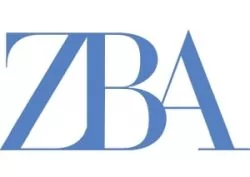Introduction
The recent judgment of the Delhi High Court in the case of Cairn India Ltd & Ors. v. Government of India (GOI) (decided on February 2020) is an interesting exposition on the status and enforceability of a New York Convention award in India.
The question before the Court was whether an action to enforce an NYC award was barred by limitation. By way of background, under the Indian Limitation Act, 1963, the time period for enforcement of a decree is 12 years commencing from the date of the decree. In other cases, there is a 3-year limitation period commencing from the date the cause of action ensues.
The award holder contended that the 12-year time period was attracted as an NYC award was a decree of the court. In contrast, GOI argued that a foreign award is not a decree until the Court rules on the Indian equivalent of the Article V defences to enforcement. GOI submitted that as the court was yet to rule on the enforceability of the award, the 12-year limitation period was inapplicable- according to it the correct time for enforcement of a foreign award was 3 years, resulting in the enforcement action being time barred.
Court Analysis
The Court in prefatory remarks commented that the provisions of the Act were to be construed in a pragmatic rather than a pedantic manner. In the Court's analysis, execution of foreign award could be divided into three stages; i) access ii) recognition and iii) enforcement.
The Court ruled that first and second stage of enforcement is found in the Indian equivalent of Article 4 of the NYC, i.e. Section 47 of the Act. Section 47 of the Act, prescribes the proof/evidence that is required for the award to be recognized by the Indian Courts as a foreign award for the purposes of the NYC. The Court held that the award is treated as a decree of the Indian court upon satisfaction of the Section 47/Article IV requirements. However, enforcement of such award may be refused if the award fell foul of the Section 48/ Article V defences to enforcement.
The Court observed that a foreign award can be used as a defense, set off or as evidence in any legal proceeding in India by the award holder. The Court reasoned that if GOI's contention were accepted, it would result in a foreign award not being capable of use as a defense, set off or evidence in any other legal proceedings in India, until it passed the test of Section 48 of the Act. This according to the Court was an undesirable outcome as it would result in delay and undermine the objectives of the Act.
Conclusion
In its analysis of the provisions of Section 46 to 49 of the Arbitration Act,1996, (provisions dealing with enforcement of NYC awards) the Court finally put to rest the uncertainty and obscurity of the true status and nature of a foreign arbitral award in India. The judgement is helpful, as a foreign award holder can without unnecessary delay, proceed directly to execution in India, without having to await a ruling on any challenge to enforcement.
Originally published 31 July, 2020
The above is a generic analysis and should not be regarded as a substitute for specific advice based on the facts of a client's objectives and specific commercial agreements reached. Please do reach out to us at mail@zba.co.in for any queries.

